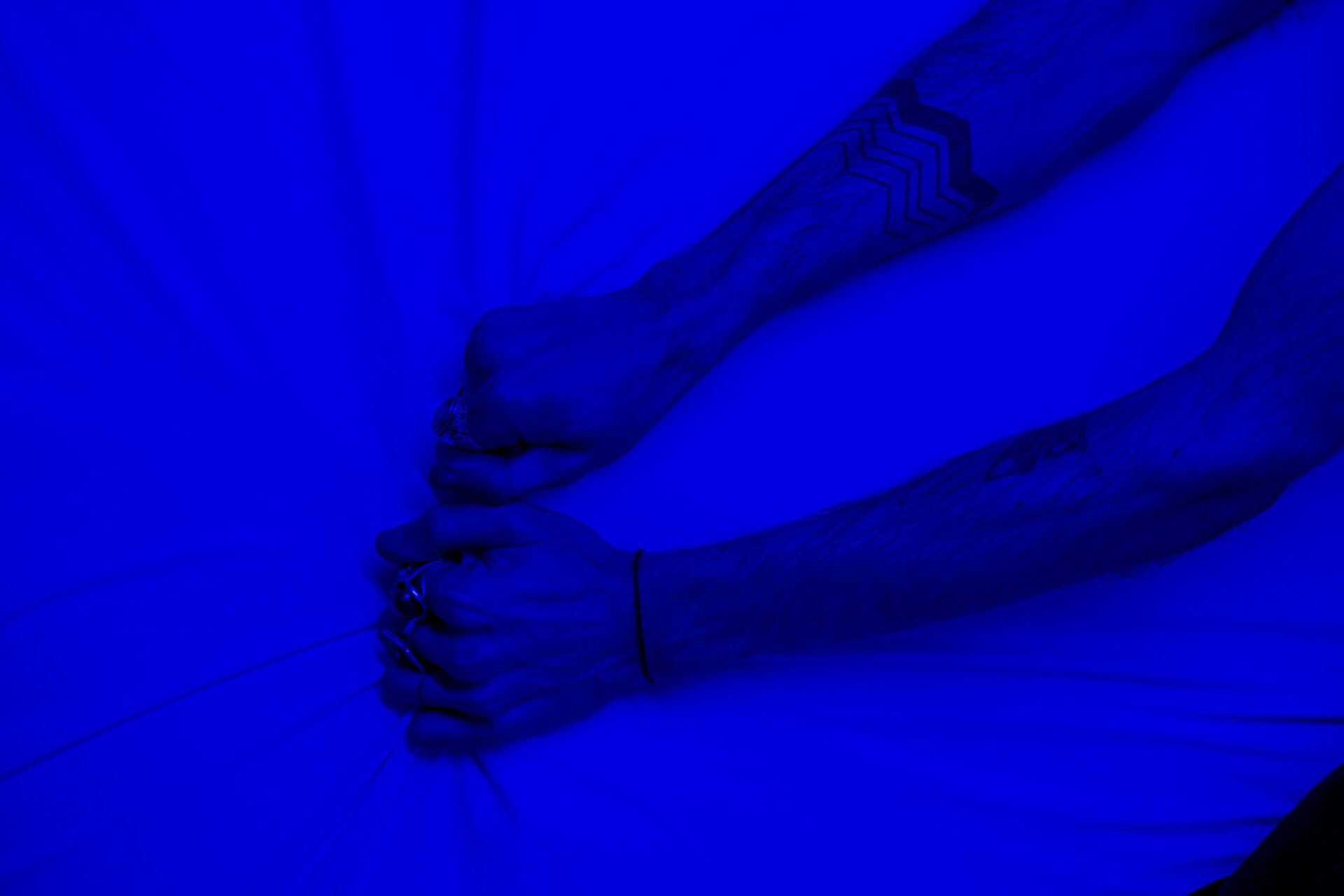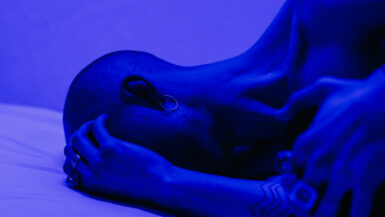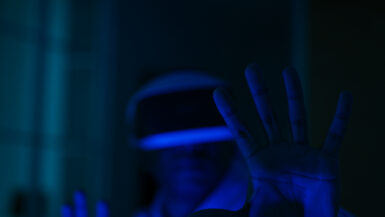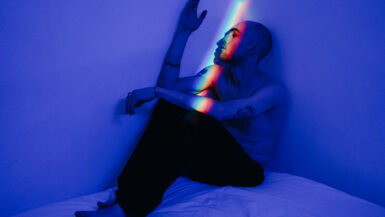In today’s fast-paced digital era, electronic devices have become an integral part of our daily lives, often accompanying us late into the night. While these gadgets provide us with endless hours of entertainment, communication, and productivity, they also emit blue light that can have a significant impact on our sleep patterns and overall productivity. In this article, we delve deeper into the consequences of late-night screen time, exploring the science behind blue light exposure, its effects on our sleep quality, and the subsequent impact on our well-being and daily performance. We also offer practical solutions on how to minimize these detrimental effects and maintain a healthy balance between digital engagement and a restorative sleep.
The Impact of Sleep Deprivation on Productivity
The consequences of late-night screen time on sleep can extend well beyond feeling groggy the next day. Sleep deprivation has a profound impact on our cognitive functions, affecting our overall productivity and performance at work or school. In this subsection, we explore the various ways in which insufficient sleep can hinder our daily activities and examine how blue light exposure exacerbates these issues. Additionally, we provide a useful resource for overcoming the sleep-disrupting effects of blue light during stressful periods.
Impaired Cognitive Functions
One of the primary consequences of sleep deprivation is the decline in cognitive functions. This includes reduced attention span, slower reaction times, and weakened problem-solving skills. Such impairments can make it difficult to concentrate on tasks, leading to decreased efficiency and increased errors. In a world where productivity is highly valued, the impact of sleep deprivation on cognitive functions is a significant concern.
Emotional and Mental Health Consequences
Lack of sleep can also take a toll on our emotional well-being and mental health. Sleep-deprived individuals may experience mood swings, irritability, anxiety, and even depression. These emotional disturbances not only affect our interpersonal relationships but also hinder our ability to stay focused and motivated at work or school.
Physical Health and Energy Levels
Insufficient sleep can lead to decreased energy levels, leaving us feeling fatigued and sluggish throughout the day. This lack of energy can make it challenging to perform tasks that require physical exertion, further diminishing our productivity. Moreover, chronic sleep deprivation has been linked to various health issues, such as obesity, cardiovascular disease, and a weakened immune system, which can also impact our daily performance.
Blue Light Exposure and Sleep Deprivation
The blue light emitted by our electronic devices is a significant contributor to sleep disturbances. Exposure to blue light suppresses the production of melatonin, the hormone responsible for regulating our sleep-wake cycle. This disruption makes it difficult to fall asleep and can lead to poor sleep quality. In turn, the ensuing sleep deprivation can exacerbate the negative effects on our productivity and well-being.
To combat the impact of blue light on sleep, especially during stressful times, we recommend reading our article on Overcoming Blue Light’s Impact on Sleep During Stressful Times. This resource provides valuable insights and practical tips for minimizing the sleep-disrupting effects of blue light exposure and ensuring a restful night’s sleep.
Ultimately, understanding the relationship between late-night screen time, sleep deprivation, and productivity is crucial for maintaining a healthy work-life balance. By taking steps to reduce blue light exposure and improve our sleep quality, we can enhance our cognitive functions, emotional well-being, and overall performance in our daily activities.
Understanding Blue Light and Its Effects on Sleep
While the modern world has provided us with numerous advantages, it has also brought about new challenges that affect our health and well-being. One such issue is the impact of blue light exposure on our sleep quality. In this subsection, we delve into the science behind blue light and explore its effects on our sleep patterns. We also discuss the consequences of prolonged exposure to blue light and offer practical solutions for mitigating its impact on our restorative sleep.
What is Blue Light and Where Does It Come From?
Blue light is part of the visible light spectrum, characterized by its short wavelengths and high energy. It is emitted naturally by the sun, which helps regulate our circadian rhythms or internal body clocks. However, artificial sources of blue light, such as LED screens, smartphones, tablets, and other electronic devices, have become increasingly prevalent in our daily lives. This constant exposure to blue light, particularly during evening hours, can disrupt our sleep patterns and lead to a range of sleep-related issues.
The Science Behind Blue Light and Sleep
Our bodies produce a hormone called melatonin, which is crucial for regulating our sleep-wake cycles. As daylight fades and darkness sets in, melatonin production increases, signaling to our bodies that it is time to prepare for sleep. However, exposure to blue light, especially during the evening, can suppress melatonin production and disrupt our natural sleep rhythms.
Research has shown that exposure to blue light before bedtime can delay the onset of sleep, reduce the amount of rapid eye movement (REM) sleep, and lead to more frequent awakenings during the night. These disruptions in sleep quality can have a significant impact on our overall health and well-being.
Consequences of Prolonged Blue Light Exposure
Consistent exposure to blue light before bedtime can lead to chronic sleep deprivation, which has been linked to various health issues, including obesity, cardiovascular disease, and a weakened immune system. Moreover, insufficient sleep can negatively affect our cognitive functions, emotional well-being, and daily performance, as previously discussed in this article.
Practical Solutions for Minimizing Blue Light Exposure
To mitigate the impact of blue light on sleep, it is crucial to adopt healthy habits that promote better sleep hygiene. Some practical solutions include:
1. Limiting screen time before bedtime: Set a designated time to disconnect from electronic devices, ideally at least an hour before going to sleep.
2. Using blue light filtering apps or screen protectors: These tools can help reduce the amount of blue light emitted by your devices, making it easier for your body to prepare for sleep.
3. Adjusting device settings: Many smartphones and tablets have built-in features that allow you to adjust the color temperature of your screen, reducing blue light emission during evening hours.
4. Creating a sleep-friendly environment: Make your bedroom a sanctuary for restful sleep by keeping it cool, dark, and quiet. Consider using blackout curtains, a white noise machine, or earplugs to minimize disruptions.
By implementing these strategies, you can effectively reduce the impact of blue light on your sleep quality and improve your overall health and productivity. As we continue to rely on electronic devices in our daily lives, it is essential to find a balance that promotes both our digital engagement and a restorative sleep.
The Connection Between Screen Time and Insomnia
As our dependence on electronic devices continues to grow, so does the prevalence of sleep disturbances, particularly insomnia. This subsection delves into the relationship between screen time and insomnia, exploring the various factors that contribute to the development of this sleep disorder. We will also discuss potential strategies for managing screen time to promote better sleep quality and reduce the risk of insomnia.
Electronic Devices and the Onset of Insomnia
Insomnia is a common sleep disorder characterized by difficulty falling asleep, staying asleep, or waking up too early, leading to daytime fatigue and impaired daily functioning. One factor contributing to the development of insomnia is the increased use of electronic devices, especially during the evening hours. The blue light emitted by screens can suppress melatonin production, disrupting our natural sleep rhythms and making it more challenging to fall asleep. Moreover, the stimulating content and interactive nature of electronic devices can keep our minds alert and engaged, further hindering our ability to relax and drift off to sleep.
Psychological Factors and Screen Time
The psychological impact of screen time on sleep cannot be ignored. Engaging with social media, watching the news, or even playing video games can evoke strong emotions, such as stress, anxiety, or excitement, which can make it difficult to unwind and prepare for sleep. Furthermore, the fear of missing out (FOMO) and the constant need to stay connected can create an unhealthy attachment to our devices, contributing to sleep disturbances and the development of insomnia.
Screen Time and Sleep Quality
Even if individuals with insomnia manage to fall asleep, their sleep quality may still be compromised due to screen time. Exposure to blue light before bedtime can reduce the amount of REM sleep, which is essential for cognitive functions such as memory consolidation and emotional regulation. Consequently, individuals may still feel groggy and fatigued the next day, despite spending a seemingly adequate amount of time in bed.
Strategies for Managing Screen Time to Reduce Insomnia Risk
To minimize the risk of insomnia and promote better sleep quality, it is essential to adopt healthy habits that encourage a more balanced relationship with our electronic devices. Some practical strategies include:
1. Establishing a consistent sleep schedule: Going to bed and waking up at the same time every day can help regulate our internal body clocks and improve our ability to fall asleep more easily.
2. Practicing relaxation techniques: Engaging in relaxation techniques, such as deep breathing exercises, meditation, or even reading a physical book before bedtime, can help calm the mind and prepare the body for sleep.
3. Creating a digital curfew: Designate a specific time each night to disconnect from electronic devices, ideally at least an hour before bedtime, to allow the mind and body to wind down.
4. Designing a sleep-friendly bedroom: Remove electronic devices from the bedroom and create an environment conducive to sleep with comfortable bedding, dim lighting, and a cool temperature.
By implementing these strategies and being mindful of our screen time habits, we can effectively reduce the risk of insomnia and improve our overall sleep quality. A healthy balance between digital engagement and restorative sleep is crucial for our well-being and daily functioning.
How Electronic Devices Disrupt Circadian Rhythms
The consequences of late-night screen time on sleep are closely linked to the disruption of our circadian rhythms or internal body clocks. Our daily routines, such as waking up, eating, and sleeping, are influenced by these biological rhythms, which are in turn affected by various environmental factors, including light exposure. In this subsection, we explore the mechanisms through which electronic devices disrupt our circadian rhythms and the subsequent impact on our sleep quality and overall health.
The Role of Light in Regulating Circadian Rhythms
Light plays a crucial role in regulating our circadian rhythms. Our bodies are particularly sensitive to blue light, which is naturally emitted by the sun during daytime hours. This blue light exposure triggers a series of physiological responses, such as the suppression of melatonin production and increased alertness, which help maintain a healthy sleep-wake cycle.
However, our modern lifestyles have led to increased exposure to artificial sources of blue light, specifically through electronic devices like smartphones, tablets, and computers. This constant exposure, particularly in the evening, can disrupt our natural sleep patterns and lead to a range of sleep-related issues.
Electronic Devices and the Suppression of Melatonin
One of the primary ways in which electronic devices disrupt our circadian rhythms is through the suppression of melatonin production. Melatonin, also known as the “sleep hormone,” helps signal to our bodies that it is time to wind down and prepare for sleep. Exposure to blue light from electronic devices, especially during the evening hours, can interfere with this process, making it more challenging to fall asleep and stay asleep throughout the night.
Impact of Screen Time on Sleep Onset and Duration
The increased use of electronic devices before bedtime has been linked to delayed sleep onset and reduced sleep duration. Studies show that individuals who engage in late-night screen time take longer to fall asleep and experience shorter sleep duration compared to those who refrain from using electronic devices in the evening. This reduced sleep quality can have detrimental effects on our cognitive functions, emotional well-being, and overall health.
Strategies to Minimize Circadian Rhythm Disruption
To mitigate the impact of electronic devices on our circadian rhythms and promote better sleep quality, it is essential to implement healthy habits that encourage a more balanced relationship with screen time. Some practical strategies include:
1. Creating a digital curfew: Set a designated time each night to disconnect from electronic devices, ideally at least an hour before bedtime, to allow your body to wind down and prepare for sleep.
2. Adjusting device settings: Many smartphones and tablets have built-in features that enable you to adjust the color temperature of the screen, reducing blue light emission during evening hours.
3. Using blue light filtering apps or screen protectors: These tools can help minimize the amount of blue light emitted by your devices, making it easier for your body to maintain its natural sleep rhythms.
4. Prioritizing natural light exposure: Ensure that you get ample exposure to natural sunlight during the day, which can help regulate your circadian rhythms and improve your sleep quality.
By adopting these strategies and being mindful of our screen time habits, we can effectively reduce the disruption of our circadian rhythms and improve our overall sleep quality. A healthy balance between digital engagement and restorative sleep is essential for maintaining our well-being and daily functioning.
Tips for Reducing Blue Light Exposure Before Bed
As we have explored the consequences of late-night screen time on our sleep quality, it is crucial to address practical ways to minimize the negative impact of blue light exposure, particularly during the hours preceding bedtime. In this subsection, we will share several tips for effectively reducing blue light exposure in the evening, helping you create a healthier routine and improve your overall sleep quality.
Establish a Digital Curfew
One of the most effective ways to reduce blue light exposure before bed is to establish a digital curfew. This involves setting a specific time each night, ideally at least an hour before bedtime, when you will disconnect from electronic devices. This practice allows your body and mind to wind down, preparing you for a restful night’s sleep.
Adjust Device Settings to Reduce Blue Light Emission
Many electronic devices come equipped with settings that allow you to adjust the color temperature of the screen, which in turn reduces blue light emission. Enabling these settings, often referred to as “night mode” or “night shift,” can help minimize the impact of blue light on your sleep quality, particularly during evening hours.
Utilize Blue Light Filtering Apps and Screen Protectors
Various apps and screen protectors on the market are specifically designed to filter out blue light emitted by electronic devices. By using these tools, you can significantly reduce the amount of blue light that reaches your eyes, contributing to better sleep hygiene and improved sleep quality.
Create a Relaxing Bedtime Routine
Developing a relaxing bedtime routine that does not involve electronic devices can help your body and mind prepare for sleep more effectively. Consider engaging in calming activities such as reading a physical book, practicing mindfulness meditation, or taking a warm bath. By replacing screen time with these soothing practices, you can minimize blue light exposure and foster an environment conducive to restful sleep.
Opt for Alternative Evening Entertainment
Consider swapping out electronic devices for alternative forms of evening entertainment, such as board games, puzzles, or listening to music or podcasts. These activities provide enjoyment and relaxation without exposing you to blue light, making them a healthier option for your pre-bedtime routine.
Keep Electronic Devices Out of the Bedroom
Lastly, it is essential to create a sleep-friendly environment by keeping electronic devices out of the bedroom. This practice not only reduces blue light exposure but also helps to establish a clear boundary between your sleep space and digital activities, promoting a better night’s sleep.
Implementing these tips for reducing blue light exposure before bed can have a significant impact on your sleep quality, leading to improved cognitive function, emotional well-being, and overall health. By being mindful of your screen time habits and incorporating these strategies into your evening routine, you can strike a healthy balance between technology use and restorative sleep.





Leave a reply